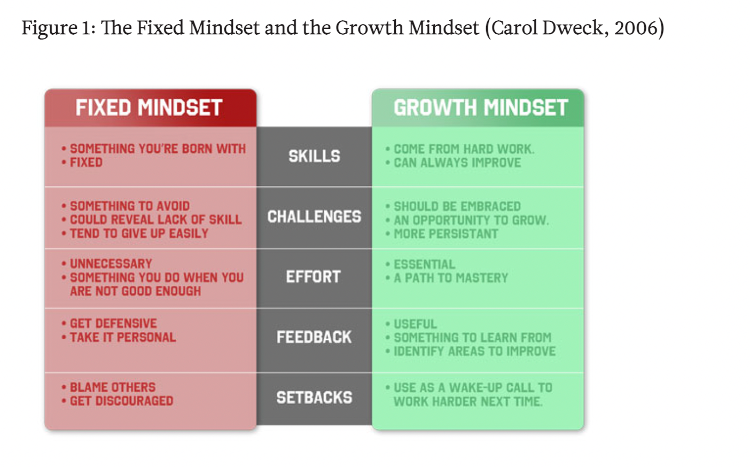
Resources and Tips:
| Growth Mindset |
| A growth mindset is a belief that one’s abilities can be developed and improved through effort, learning and perseverance. People with a growth mindset embrace challenges, see failures as an opportunity to learn, and understand that dedication and practice can lead to mastery in math. This mindset encourages a willingness to take on difficult math tasks and a belief that success is achievable with time and effort, rather than seeing math skills as fixed or innate. It promotes a positive attitude towards learning and math-related challenges. |
| The Fixed Mindset and The Growth Mindset Chart |
 Source: Carol Dweck, 2006 |
| Social-Emotional Learning (SEL) Skills |
|
| Strategies for Parents by Jo Boaler |
|
Jo Boaler downloadable resources:
- Everyone Can Learn Math Poster
- Number Sense Video
- Believe in Yourself Video
- Brains Grow and Change Video
- Speed is Not Important
- Strategies for Learning Math
- The Importance of Struggle
- The Importance of Struggle (Short Clip)
- Social-Emotional Learning (SEL) Skills in Mathematics and The Mathematical Processes
- Strategies for Parents Handout
